Central Harlem’s legacy as the mecca of African-American culture is undeniable. During the vibrant Harlem Renaissance, this iconic neighborhood became the epicenter of Black arts, music, and intellectual life. Today, its historic landmarks and cultural institutions continue to celebrate the rich heritage of the African-American experience. Whether you’re captivated by the lively 125th Street corridor or in awe of the stately architecture, there’s no denying the profound impact Harlem has had on shaping the soul of the nation. Dive deeper into this remarkable story, and uncover the profound significance of this legendary community.
Key Points
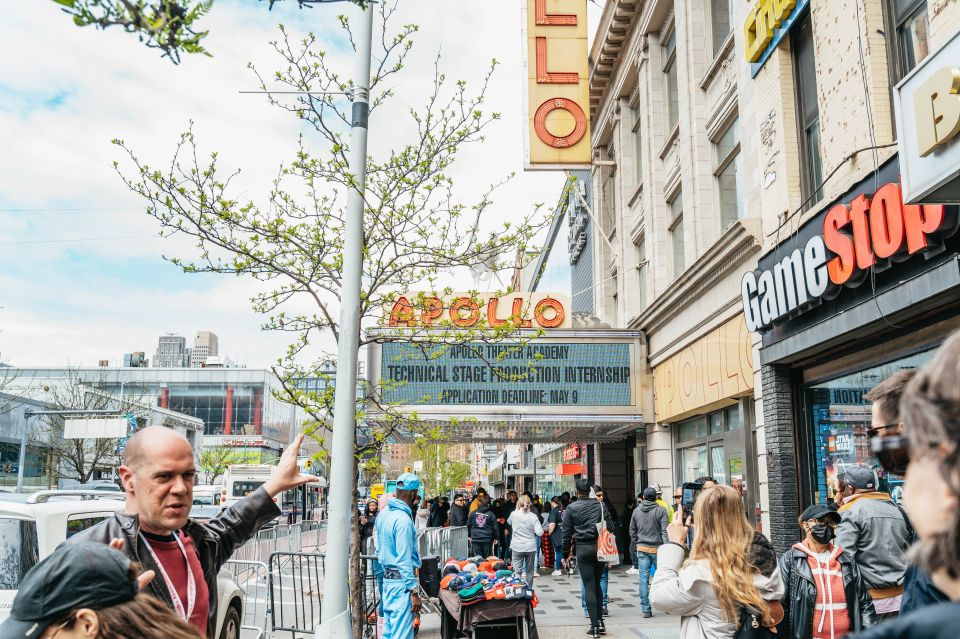
- Central Harlem emerged as the epicenter of African-American arts, culture, and intellectual life during the Harlem Renaissance in the 1920s.
- Vibrant 125th Street corridor, with its diverse array of shops, restaurants, and cultural institutions, reflects the neighborhood’s rich history and evolving character.
- Iconic landmarks, such as the Apollo Theater and Hotel Theresa, stand as testaments to Harlem’s influential role in shaping African-American identity and pride.
- Majestic brownstones, row houses, and grand church architecture are visual reminders of Harlem’s architectural and spiritual legacy.
- Harlem’s diverse history and legacy continue to shape the cultural and political landscape of the African-American community.
Significance of the Harlem Renaissance
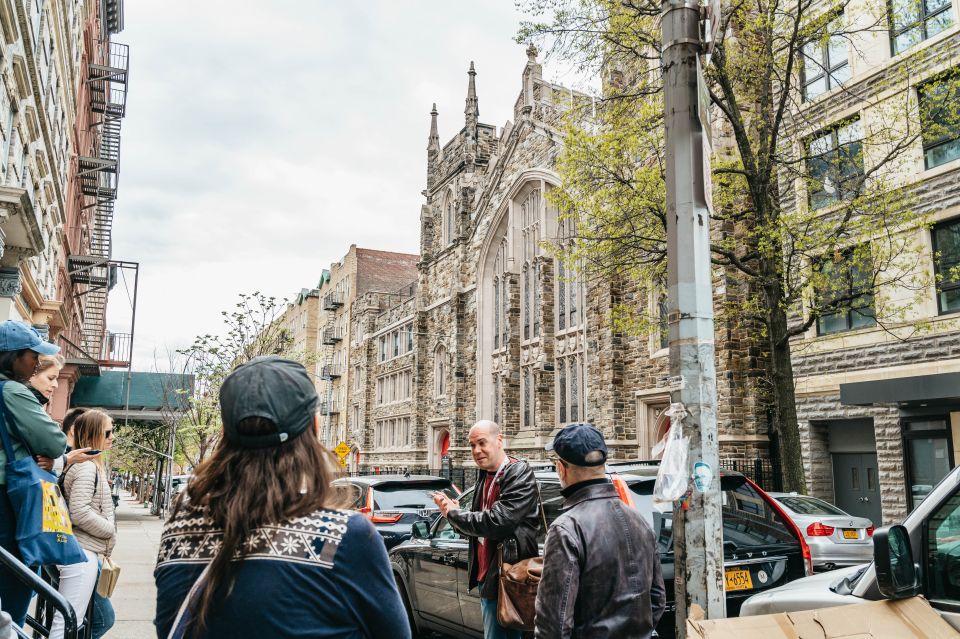
The Harlem Renaissance, a flourishing of African-American arts and culture in the 1920s, firmly established Central Harlem as the Mecca of African-American culture during this pivotal period.
This era saw the emergence of legendary artists, writers, and intellectuals who challenged the status quo and celebrated the rich heritage of Black America.
From the jazz clubs that birthed iconic musical styles to the vibrant literary scene that gave voice to the Black experience, Harlem became a hub of creativity and activism.
The legacy of the Harlem Renaissance continues to shape the neighborhood’s identity as a cultural epicenter, inspiring visitors to explore its storied past and vibrant present.
You can also read our reviews of more tours and experiences in New York City.
Vibrant 125th Street Corridor
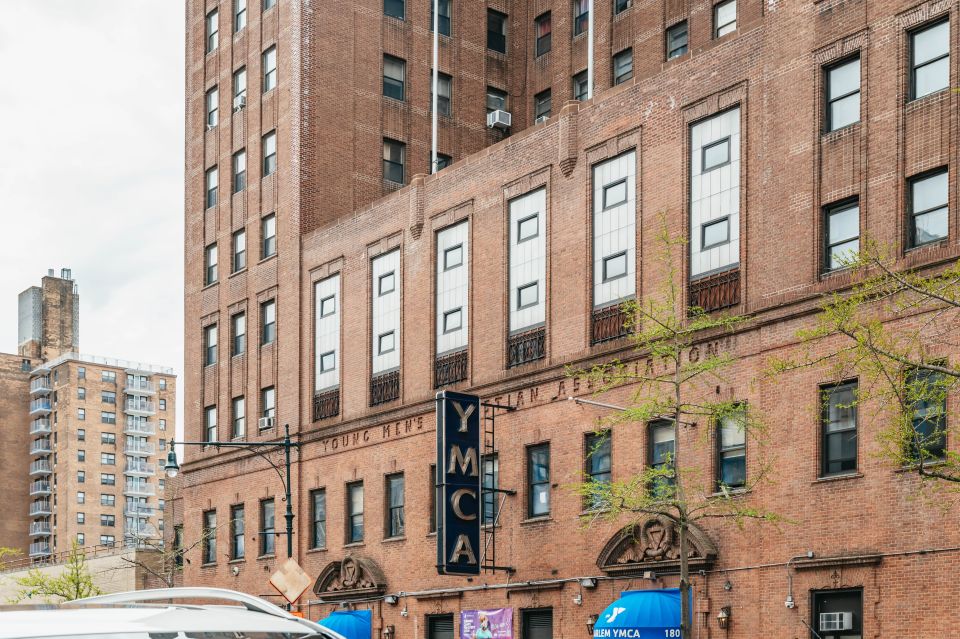
125th Street, Harlem’s primary commercial corridor, bustles with energy as visitors and locals alike explore its vibrant mix of old and new.
The street is lined with a diverse array of shops, restaurants, and cultural institutions that reflect the neighborhood’s rich history and evolving character.
From iconic jazz clubs to trendy boutiques, the corridor offers a unique shopping and dining experience.
Strolling along 125th Street, one can witness the juxtaposition of Harlem’s past and present, where historic buildings stand alongside modern developments.
This vibrant thoroughfare serves as a hub for the community, showcasing the neighborhood’s resilience and the enduring spirit of African-American culture.
Historic Sites and Landmarks
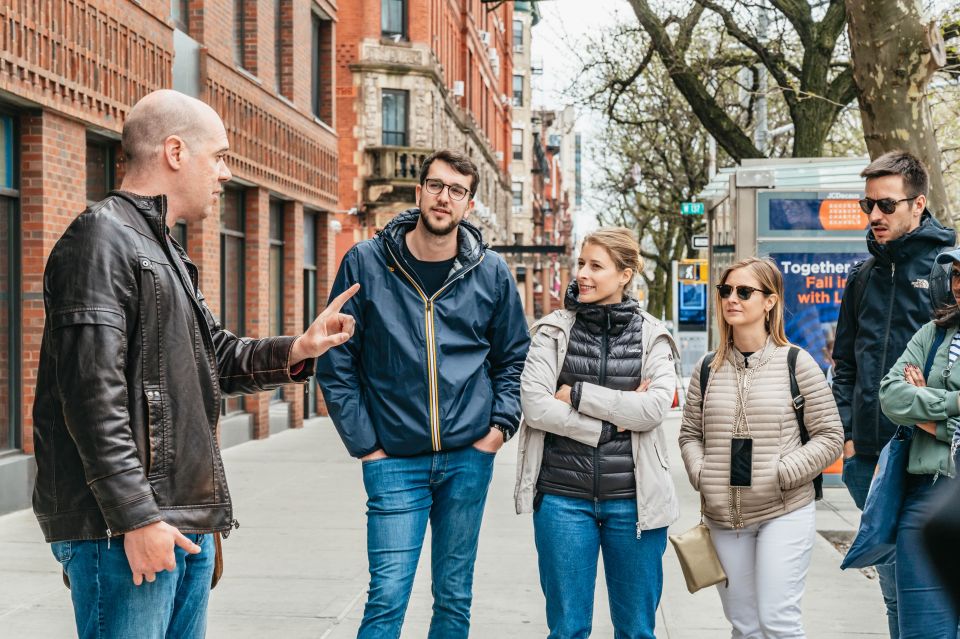
Beyond the vibrant energy of 125th Street, Central Harlem boasts a wealth of historic sites and landmarks that offer a glimpse into the neighborhood’s rich cultural heritage.
Visitors can explore the iconic Apollo Theater, where legendary performers like Ella Fitzgerald and Billie Holiday graced the stage, or wander through the hallowed halls of the Hotel Theresa, once known as the ‘Waldorf of Harlem.’
Historic churches like the Abyssinian Baptist Church and the Mother African Methodist Episcopal Zion Church stand as testaments to Harlem’s spiritual legacy.
The Schomburg Center for Research in Black Culture houses an acclaimed collection of artifacts and resources documenting the African-American experience.
Stately Homes and Churches
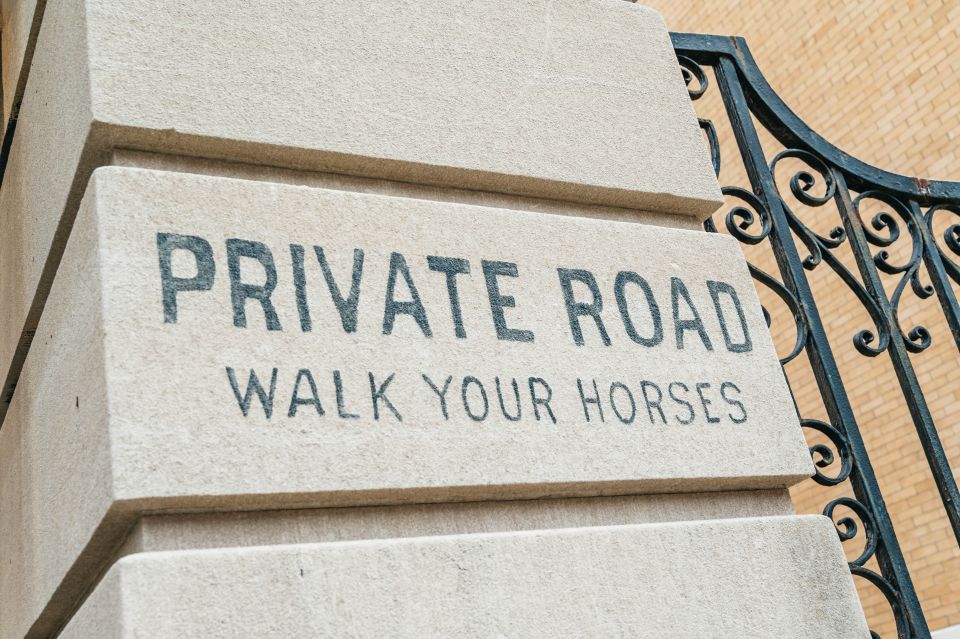
Stately homes and historic churches dot the landscape of Central Harlem’s historic district, offering visitors a glimpse into the neighborhood’s distinguished architectural and spiritual legacy.
Majestic brownstones and row houses line the streets, showcasing the grandeur of Harlem’s past. One can’t help but be awed by the ornate facades, intricate moldings, and elegant entryways that characterize these impressive structures.
Soaring church spires pierce the skyline, their ornate Gothic and Romanesque designs standing as testaments to the deep religious roots of the community.
These sites not only provide a visual feast but also a tangible connection to Harlem’s rich history and the resilience of its people.
More Great Tours NearbyDiverse History and Legacy
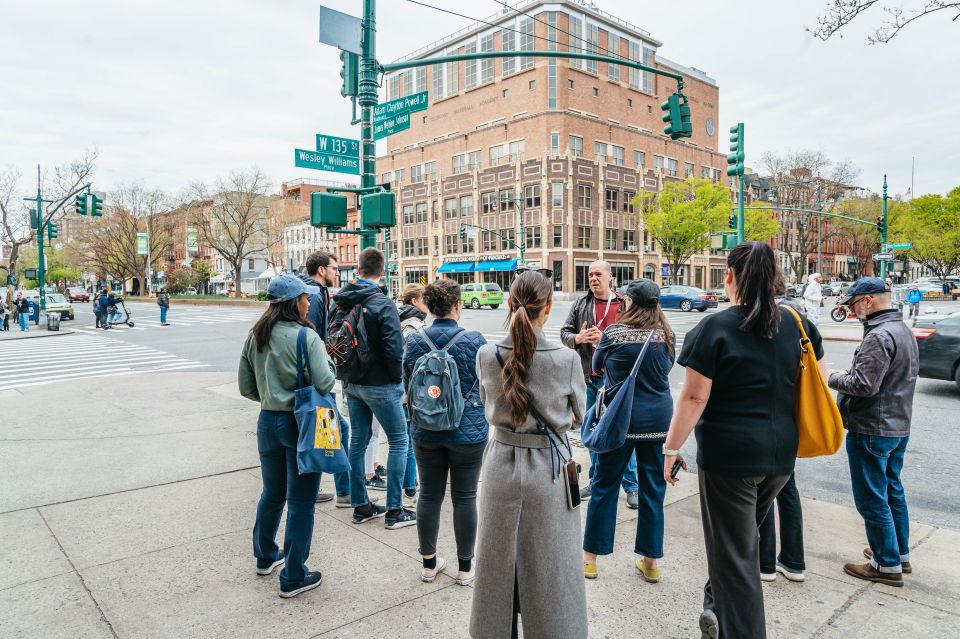
Harlem’s diverse history and legacy extend far beyond its stately homes and historic churches, capturing the vibrant tapestry of African-American culture that has thrived in this iconic neighborhood for generations.
From the groundbreaking artistic and intellectual achievements of the Harlem Renaissance to the influential civil rights movements that have sparked change, Harlem’s story is woven into the fabric of American history.
The neighborhood’s legacy is evident in its world-renowned institutions, such as the Apollo Theater, which have nurtured and showcased the talents of countless African-American artists.
Today, Harlem continues to evolve, blending its rich past with a dynamic present, offering visitors a unique glimpse into the enduring spirit of this culturally significant community.
- All-Access 9/11: Ground Zero Tour, Memorial and Museum, One World Observatory
- Artistic, Alternative Greenwich Village Walking Tour
- Broadway Theaters and Times Square With a Theater Professional
- Brooklyn Bridge & DUMBO Neighborhood Tour – From Manhattan to Brooklyn
- Central Park Guided Pedicab Tours
- Central Park Highlights Small-Group Bike Tour
Meeting Points and Tour Logistics
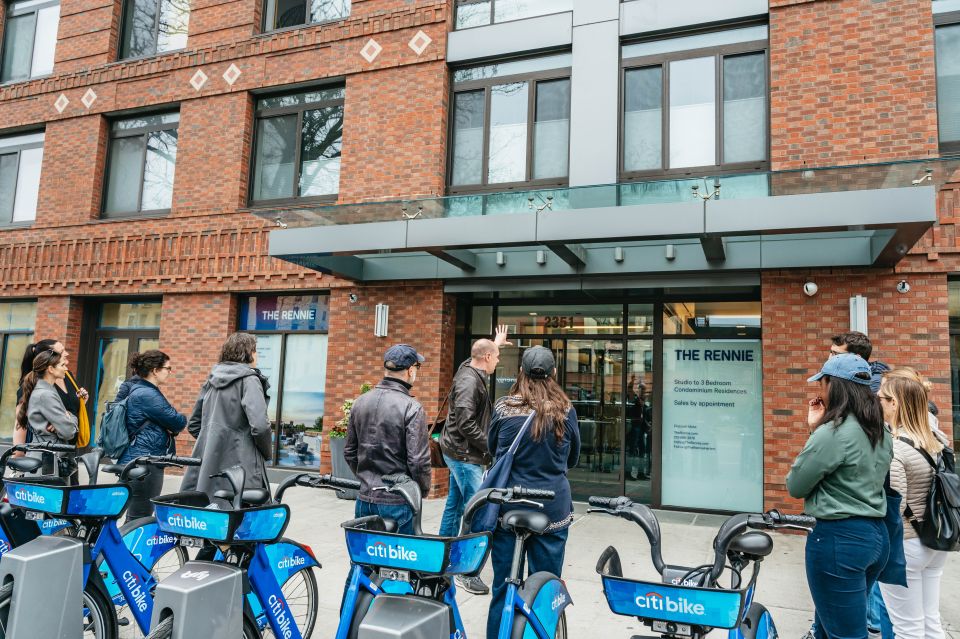
The tour kicks off at two convenient meeting points – one on Tuesdays at the CVS on 116th and Lenox Avenue, and another on Saturdays at 700 St Nicholas Avenue on 145th Street.
Whether you choose to join on a Tuesday or a Saturday, you’ll be well-positioned to embark on a fascinating exploration of Central Harlem’s rich history and vibrant culture.
The 2-hour tour is led by knowledgeable live guides who bring the neighborhood’s stories to life in English.
With free cancellation up to 24 hours in advance and the option to reserve your spot and pay later, there’s no reason not to learn about this iconic Mecca of African-American culture.
Duration and Tour Guide
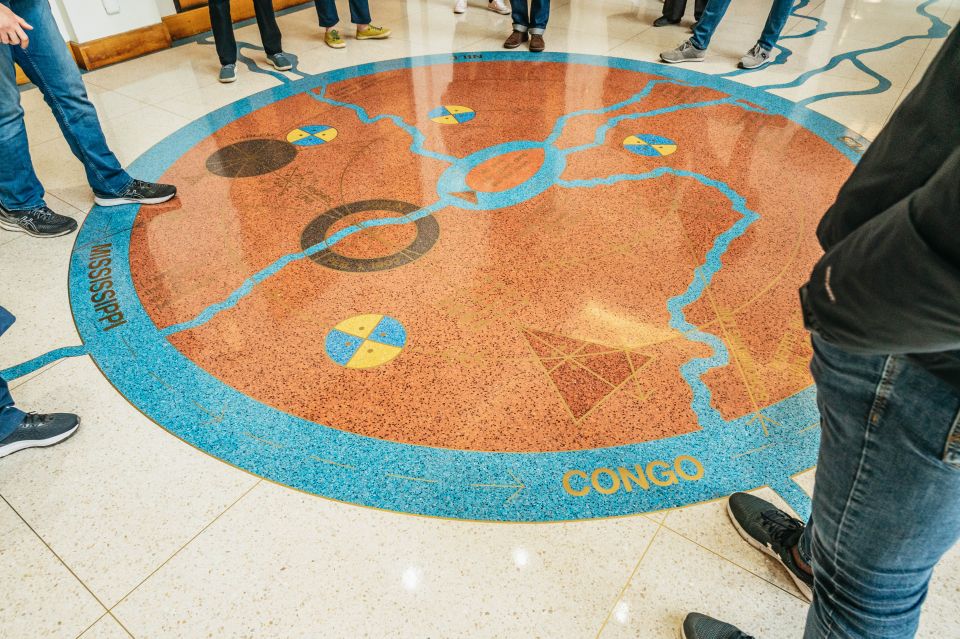
Lasting a total of 2 hours, the guided tour is led by knowledgeable live guides who bring the neighborhood’s stories to life in English.
Visitors can expect an immersive experience as they explore the historic district and learn about the significance of Central Harlem during the Harlem Renaissance.
The tour covers iconic landmarks such as the Apollo Theater and the Hotel Theresa, providing context on their cultural and historical importance.
With free cancellation up to 24 hours in advance, the tour offers flexibility for those looking to discover the vibrant heart of African-American culture in New York City.
Booking ahead is recommended, as spots on these popular tours are likely to sell out.
Pricing and Cancellation Policy
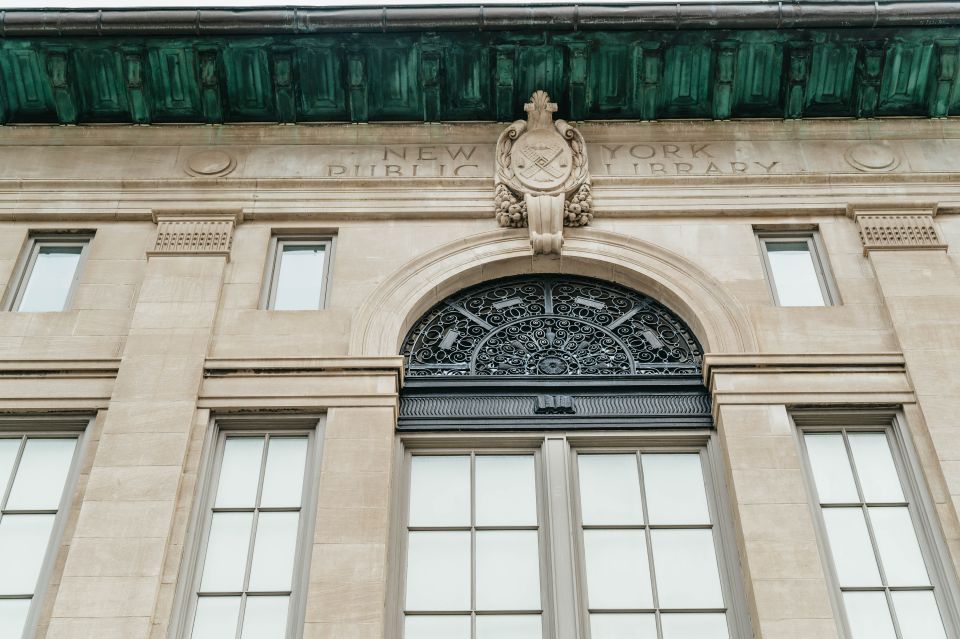
From the tour’s flexible cancellation policy to its reasonable pricing, visitors can expect an accessible and convenient experience when exploring the rich cultural heritage of Central Harlem.
At $25.00 per person, the 2-hour guided tour offers an affordable opportunity to take in the neighborhood’s storied past and vibrant present, with the option to cancel up to 24 hours in advance at no cost.
This reserve-now-pay-later policy allows travelers to secure their spot without any upfront payment, ensuring a stress-free booking process.
Given the tour’s popularity, visitors are advised to reserve their spots early, as limited availability means it’s likely to sell out quickly.
With these attractive pricing and cancellation terms, Central Harlem’s cultural exploration has never been more accessible.
Frequently Asked Questions
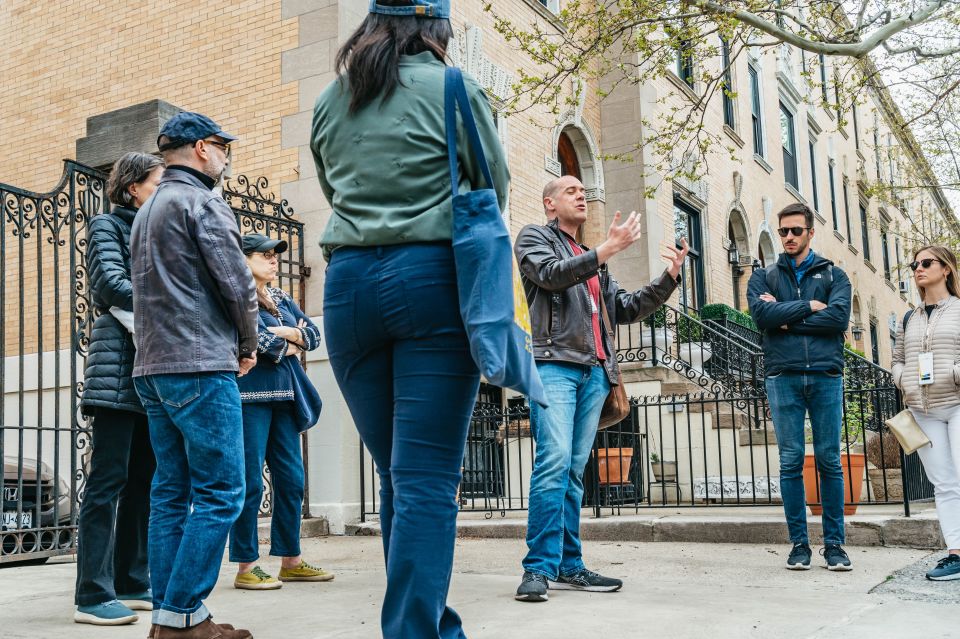
Is Photography Allowed During the Tour?
Photography is allowed during the tour. Guests are encouraged to capture the historic sights and vibrant atmosphere of the neighborhood. However, the tour guide may request participants to refrain from photography in certain sensitive areas.
Can Children Participate in the Tour?
Yes, children are welcome to participate in the Central Harlem tour. The tour is family-friendly and covers the neighborhood’s rich history and cultural significance. Guests of all ages can enjoy exploring the historic sites and learning about Harlem’s legacy.
Are There Any Accessibility Options for Disabled Visitors?
The tour offers accessibility options for disabled visitors, such as wheelchair-accessible routes and assistive devices. Guests should contact the tour operator in advance to discuss any special needs and ensure a comfortable experience.
What Is the Dress Code for the Tour?
There’s no set dress code for the Central Harlem tour. Visitors should wear comfortable walking shoes and dress for the weather, as the tour involves exploring the neighborhood on foot. Casual, weather-appropriate attire is recommended.
Can the Tour Be Customized for Private Groups?
Yes, the Central Harlem tour can be customized for private groups. The tour operator offers flexible options to accommodate group needs, from adjusting the itinerary to providing a private guide for a more personalized experience.
Recap
Central Harlem’s immense cultural significance is undeniable. It served as the epicenter of the Harlem Renaissance, nurturing iconic artists and vibrant scenes.
Today, its historic sites, stately homes, and diverse institutions continue to celebrate the African-American experience.
A visit to this Mecca offers a profound immersion in the community’s rich architectural, spiritual, and artistic legacy, solidifying its status as a cultural powerhouse.
You can check availability for your dates here:More Tour Reviews in New York City
- NYC: Brooklyn Walking Tour, Ferry, Pizza & Iconic Bridge
- Private NYC Tour With Fun Activities for Families and Kids
- Private Guided Walking Tour of Midtown Manhattan and Central Park
- Central Park Scavenger Hunt and Highlights Self-Guided Tour
- Round-Trip Transfer Between Midtown Manhattan and American Dream
- Statue of Liberty Skyline Evening Cruise on River in Manhattan
Not for you? Here's more nearby things to do in New York City we have reviewed
- NYC: Brooklyn Walking Tour, Ferry, Pizza & Iconic Bridge
- Private NYC Tour With Fun Activities for Families and Kids
- Private Guided Walking Tour of Midtown Manhattan and Central Park
- Central Park Scavenger Hunt and Highlights Self-Guided Tour
- Round-Trip Transfer Between Midtown Manhattan and American Dream
- Statue of Liberty Skyline Evening Cruise on River in Manhattan
- Private Transfer: New York to LaGuardia Airport LGA by Luxury SUV
- Half Day Pizza Crawl Through Brooklyn
- Private One-way Transfer New York to John F. Kennedy Airport
- Living Gluten Free: a Self Guided Tour Through Central Park
- Manhattan to EWR: Private Airport Departure Transfers
- The Edge City Climb and Manhattan Walking Tour
